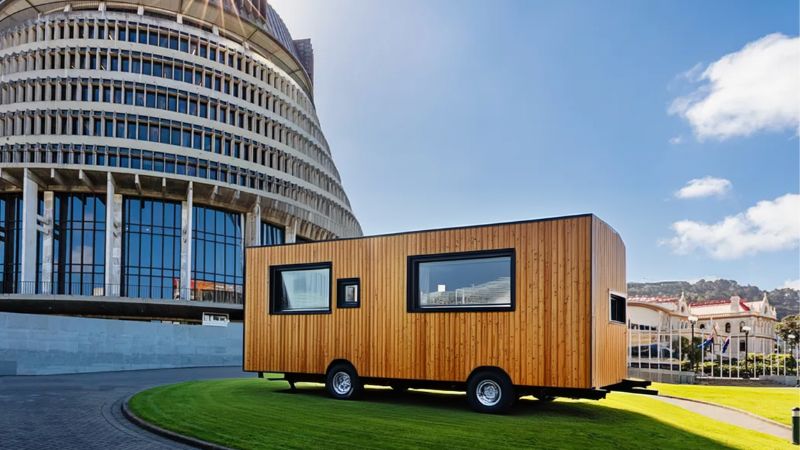The New Zealand government recently released a discussion document titled "Making It Easier to Build Granny Flats," proposing changes to the Building Act and the Resource Management Act (RMA).
These changes aim to streamline the process for constructing small, self-contained, detached houses up to 60 square metres, commonly referred to as granny flats. However, while this initiative seeks to address the housing crisis by increasing the supply of affordable homes, it misses a significant opportunity to include tiny houses, particularly those on wheels, within its scope.
The Missed Opportunity for Tiny Houses
The proposed reforms focus solely on traditional granny flats, ignoring the unique and growing sector of tiny houses. Tiny houses on wheels represent a crucial part of the housing market, providing affordable, flexible, and sustainable living options. These homes are often mobile, allowing owners to lease land temporarily and relocate as needed. This mobility is a significant advantage in a market where land ownership is increasingly unaffordable.
Tiny house owners face numerous challenges under the current regulations. These homes must comply with both the Building Act and the Land Transport Act, which often have conflicting requirements. For instance, a trailer, which serves as the foundation for a tiny house on wheels, is not an approved foundation under the Building Act. Furthermore, design elements like stair tread depth, loft heights, and emergency egress requirements pose additional hurdles for compliance.
The Inadequacy of Proposed Reforms
The government's proposed changes include adding a new schedule to the Building Act to provide a building consent exemption for granny flats up to 60 square metres. However, this schedule requires all building work to comply with the building code, which is problematic for tiny houses due to their unique design constraints. The changes also apply only to new builds, offering no relief for existing tiny house owners.
Additionally, the proposed national environmental standard for minor residential units under the RMA mandates that these units be held in common ownership with a principal residential unit on the same site. This requirement is at odds with the reality of tiny house living, where land is often leased, not owned.
The Need for Broader Reforms
The government's narrow focus on granny flats fails to address the broader housing needs of New Zealanders. By not including tiny houses in the proposed reforms, the government overlooks a valuable solution to the housing crisis. Tiny houses offer an affordable alternative to traditional homes, particularly in a market where land prices are prohibitive.
Moreover, the proposed requirement for councils to be notified when granny flats are built—so they can update property values for rating purposes, update LIMs, or charge development fees—creates a bureaucratic nightmare for tiny house owners. These owners do not want the landowner’s rates permanently increased or lump-sum development fees levied just for leasing land temporarily.
A Call to Action
The government's proposed changes are a classic case of too little, too late. They offer no real relief to those already living in tiny homes and add layers of unnecessary complexity. Real, substantial reform is needed to support tiny house living in New Zealand.
We urge you to make a submission on this discussion document, advocating for the inclusion of tiny houses within the scope of these reforms. Let’s hold the government accountable and ensure they make the necessary changes to truly support affordable housing options for all New Zealanders.
How to Make a Submission
Making your voice heard is crucial. Submissions on the proposed changes are open until 12 August 2024. You can make a submission by completing this survey (https://www.research.net/r/3Y6MZBB) and following the instructions provided.
Together, we can push for more substantial reforms that recognise and support the diverse housing needs of New Zealanders, including those who choose to live in tiny houses.


